Abstract
BACKGROUND. The new contract for general practitioners, introduced in 1990, required them to offer an annual assessment, or 'health check', to patients aged 75 years or more. AIM. A study was undertaken to collect details of practice organization of these assessments, general practitioners' and practice nurses' experience of assessments, and their views of the value of such assessments. METHOD. A nationwide postal survey of 1000 general practitioners and interview surveys with general practitioners and practices nurses from 150 practices were carried out in 1992. RESULTS. The postal survey yielded a response rate of 69% and the interview survey a practice response rate of 76%. Organization of assessments varied enormously between, and often within, practices with a variety of methods of invitation and assessment instruments being used. Of general practitioners 13% did not use a letter of any sort to invite patients to attend, and many doctors excluded certain patients from assessment, particularly those who were seen regularly or had been seen recently. However, 70% of general practitioners estimated that they had assessed over 60% of their elderly patients in the first year (1990-91). A substantial proportion of assessments were estimated to have been conducted on an opportunistic basis and few practices were doing all the assessments of those aged 75 years and over in the patients' homes. In the majority of practices, the general practitioners and practice nurses were the only personnel carrying out assessments. Only 9% of the doctors and 34% of the nurses interviewed had been specially trained to carry out the assessment; 54% of nurses said they would like more training in this area. Both doctors and nurses reported that the assessments did detect previously unknown problems, although over half of doctors reported that they rarely picked up new mental health problems. Increased referrals to social services as a direct result of the assessments were reported by 63% of doctors. The majority of doctors and nurses reported that routine assessments were useful in providing advice and reassurance to elderly people. Two thirds of doctors said they would continue to offer at least selected groups of their elderly patients routine assessments, even if not contractually obliged to do so. CONCLUSION. The findings suggest that the experiences of the first two years of this activity had convinced some general practitioners that routine assessment of elderly patients is worthwhile. However the increased demand for other services must obviously be met by an increase in resources if the effectiveness of these assessments is not to be undermined.
Full text
PDF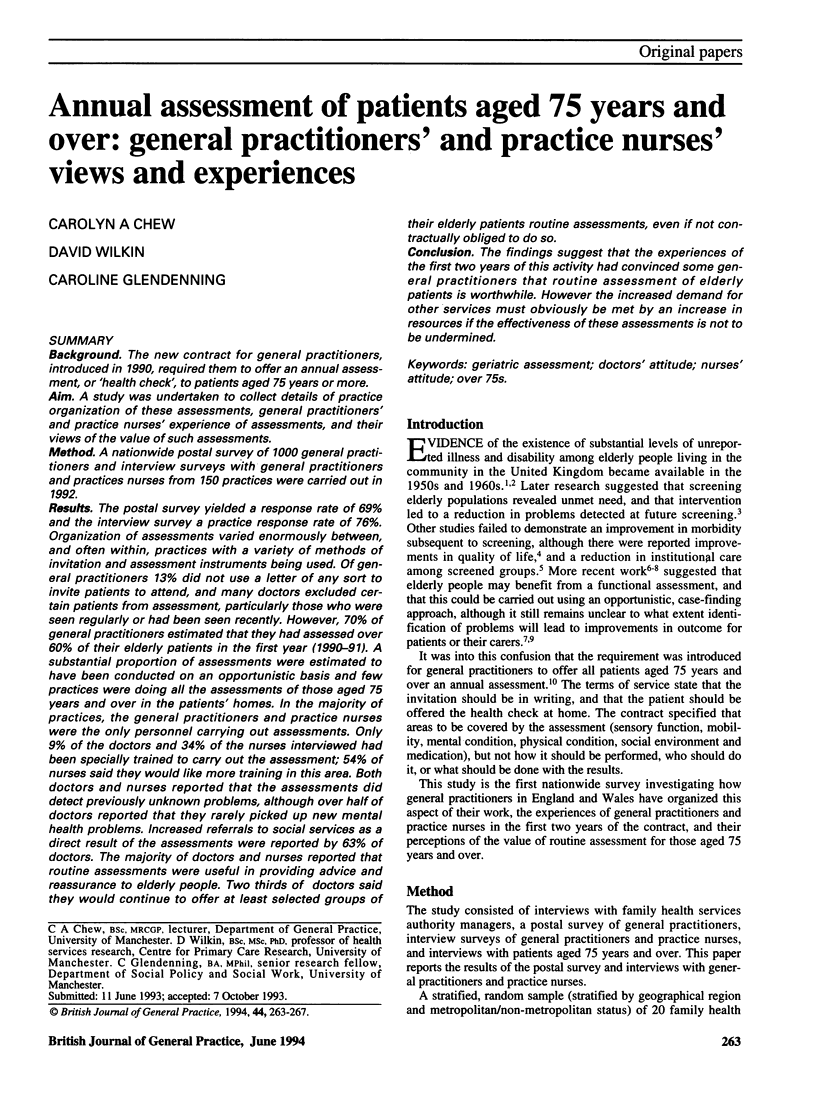
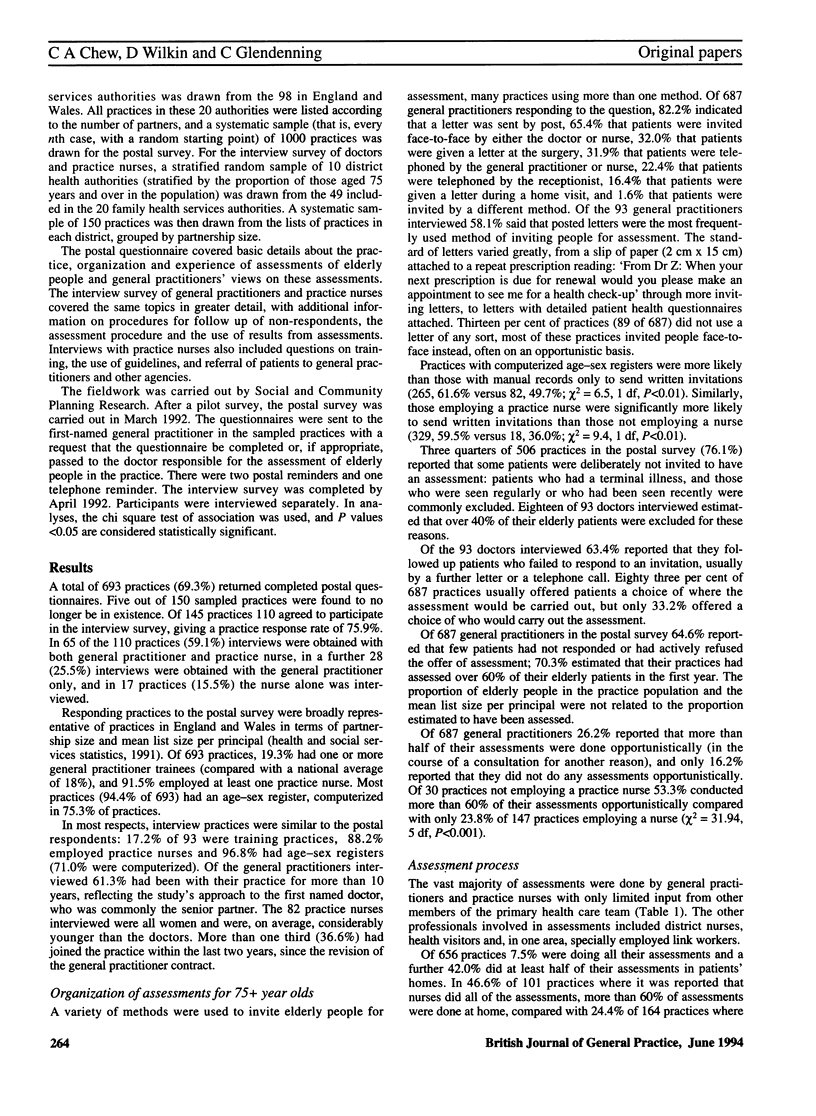
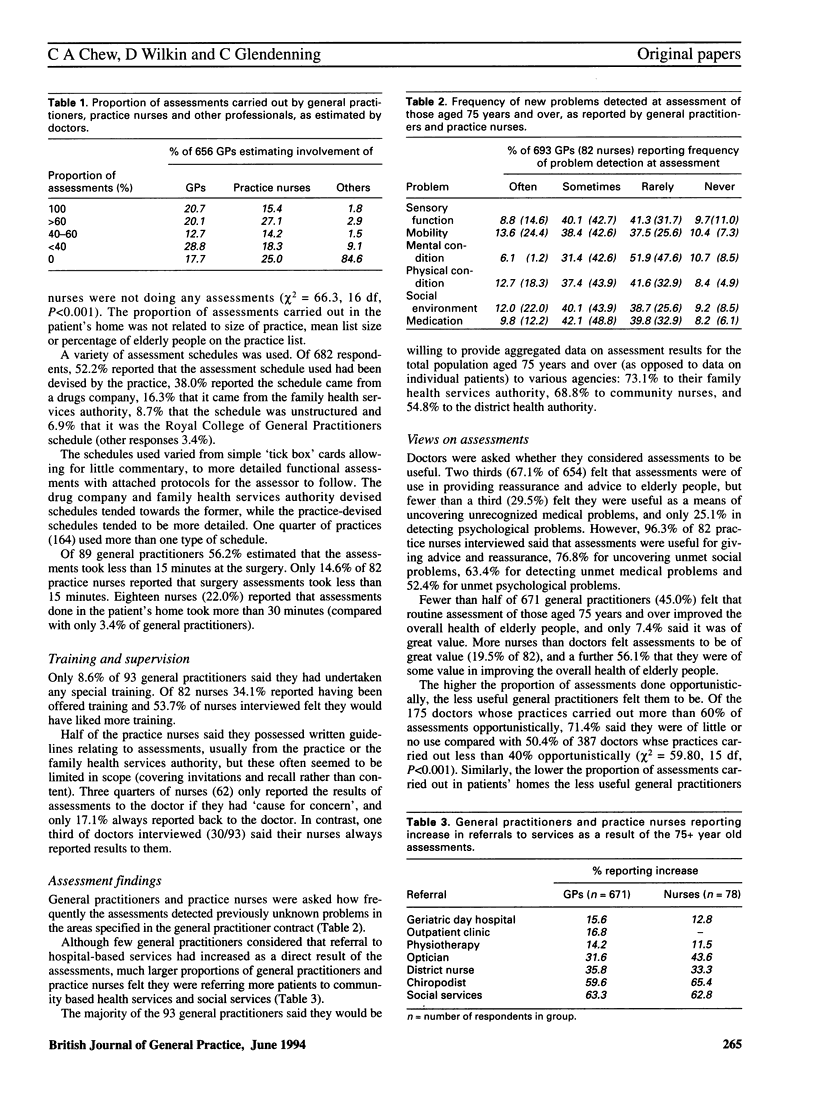
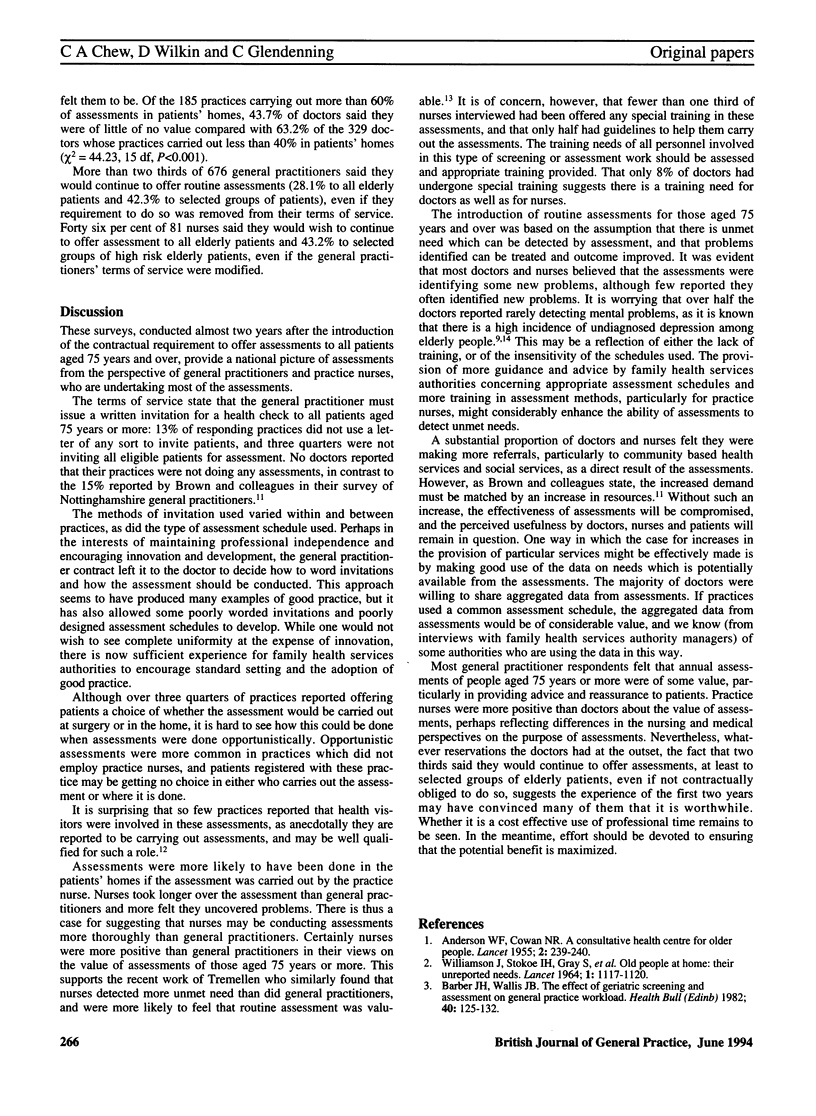
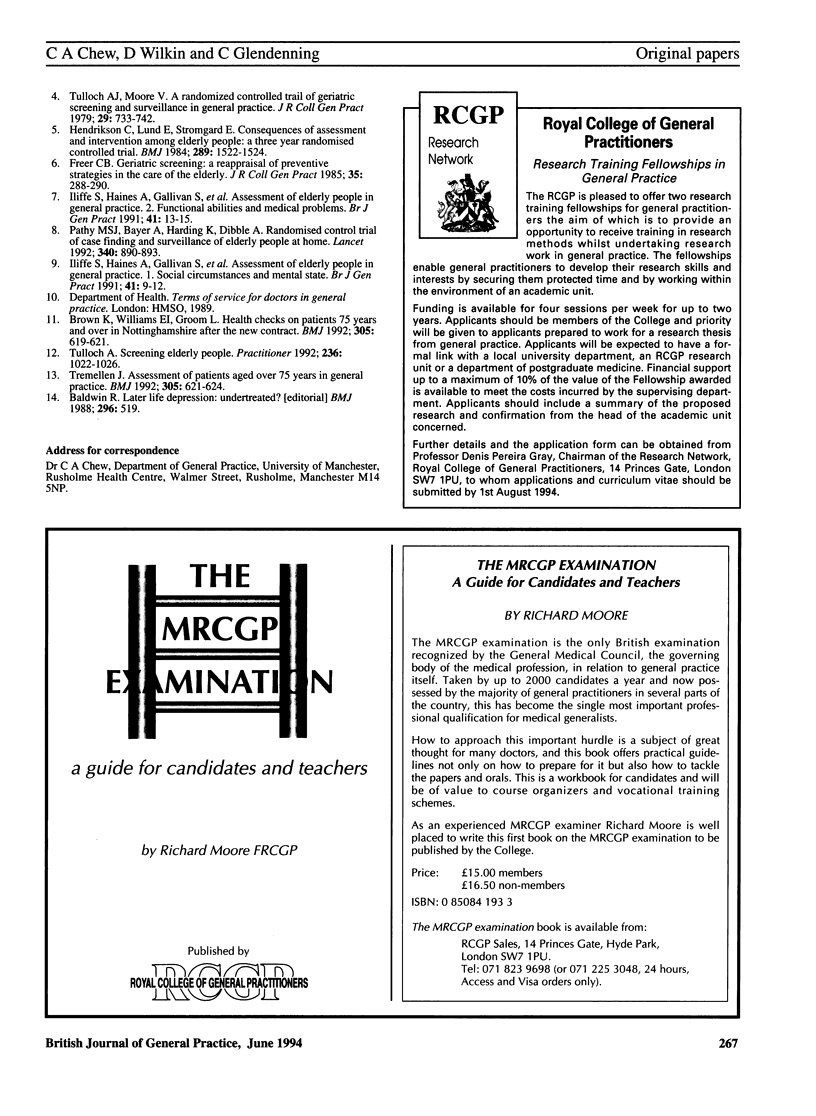
Selected References
These references are in PubMed. This may not be the complete list of references from this article.
- ANDERSON W. F., COWAN N. R. A consultative health centre for older people; the Rutherglen experiment. Lancet. 1955 Jul 30;269(6883):239–240. doi: 10.1016/s0140-6736(55)92229-7. [DOI] [PubMed] [Google Scholar]
- Barber J. H., Wallis J. B. The effects of a system of geriatric screening and assessment on general practice workload. Health Bull (Edinb) 1982 May;40(3):125–132. [PubMed] [Google Scholar]
- Brown K., Williams E. I., Groom L. Health checks on patients 75 years and over in Nottinghamshire after the new GP contract. BMJ. 1992 Sep 12;305(6854):619–621. doi: 10.1136/bmj.305.6854.619. [DOI] [PMC free article] [PubMed] [Google Scholar]
- Freer C. B. Geriatric screening: a reappraisal of preventive strategies in the care of the elderly. J R Coll Gen Pract. 1985 Jun;35(275):288–290. [PMC free article] [PubMed] [Google Scholar]
- Hendriksen C., Lund E., Strømgård E. Consequences of assessment and intervention among elderly people: a three year randomised controlled trial. Br Med J (Clin Res Ed) 1984 Dec 1;289(6457):1522–1524. doi: 10.1136/bmj.289.6457.1522. [DOI] [PMC free article] [PubMed] [Google Scholar]
- Iliffe S., Haines A., Gallivan S., Booroff A., Goldenberg E., Morgan P. Assessment of elderly people in general practice. 1. Social circumstances and mental state. Br J Gen Pract. 1991 Jan;41(342):9–12. [PMC free article] [PubMed] [Google Scholar]
- Iliffe S., Haines A., Gallivan S., Booroff A., Goldenberg E., Morgan P. Assessment of elderly people in general practice. 2. Functional abilities and medical problems. Br J Gen Pract. 1991 Jan;41(342):13–15. [PMC free article] [PubMed] [Google Scholar]
- Pathy M. S., Bayer A., Harding K., Dibble A. Randomised trial of case finding and surveillance of elderly people at home. Lancet. 1992 Oct 10;340(8824):890–893. doi: 10.1016/0140-6736(92)93294-w. [DOI] [PubMed] [Google Scholar]
- Tremellen J. Assessment of patients aged over 75 in general practice. BMJ. 1992 Sep 12;305(6854):621–624. doi: 10.1136/bmj.305.6854.621. [DOI] [PMC free article] [PubMed] [Google Scholar]
- Tulloch A. J., Moore V. A randomized controlled trial of geriatric screening and surveillance in general practice. J R Coll Gen Pract. 1979 Dec;29(209):733–740. [PMC free article] [PubMed] [Google Scholar]
- Tulloch A. Screening elderly patients. Practitioner. 1992 Nov;236(1520):1022–1026. [PubMed] [Google Scholar]
- WILLIAMSON J., STOKOE I. H., GRAY S., FISHER M., SMITH A., MCGHEE A., STEPHENSON E. OLD PEOPLE AT HOME. THEIR UNREPORTED NEEDS. Lancet. 1964 May 23;1(7343):1117–1120. doi: 10.1016/s0140-6736(64)91803-3. [DOI] [PubMed] [Google Scholar]


